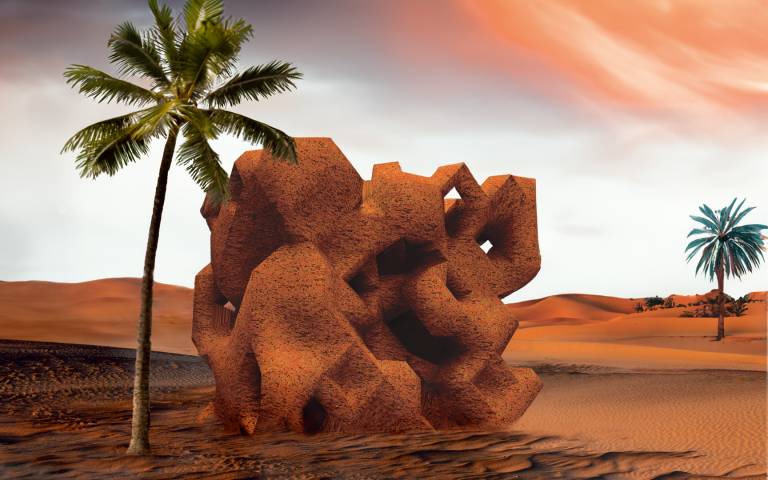 Research
Research

Subject
TERMARCH: Generation and Analysis of Communal Environments for Human-Interaction Inspired by Termites
First and second supervisors
Abstract
Termites live in cooperative colonies involving millions of individuals. These colonies, also referred to as "superorganisms," have evolved complex and closely interwoven collective behaviours. Stigmergy, flow and homeostasis, three of the mechanism based on these behaviours, allows them to create functional and environmentally adapted mound structures by only following simple rule sets. During the interactions in the foraging and construction process, termites exhibit asynchronous behaviours all around the mound, and these provide a wide variety of fertile patterns showing the dynamics of a swarm. The diversity of these patterns directly impacts the form of the nest, resulting in unique shapes that still serve the same purpose of being highly accessible and integrated. This study, therefore, draws inspiration from the collective behaviours of termites to develop computational design and analysis methods for creating well-connected architectural spaces on any scale for humans. The research employs Agent-Based Modelling as its primary methodology, wherein agents simulate the behaviour of termites and construct edifices without any central authority. Additionally, the study utilises Swarm-based Visibility Graph analysis, which quantitatively assesses outcomes' appropriateness to architectural space.
Biography
Abdulkadir Kacan is in his 3rd year of the PhD programme in Architectural Space and Computation. His research interests are social insects, agent-based modelling, collective behaviours, decentral design approaches and space syntax. His dissertation is about generating and analysing architectural space using common collective behaviours of termites and humans.
He holds a Master of Science degree in architectural computation from The Bartlett, University College London and a Bachelor of Architecture from the Erciyes University in Kayseri, Turkiye.
Funding
Abdulkadir's education is funded by the Republic of Turkey's Ministry of National Education.
Image: Abdulkadir Kacan
 Close
Close

